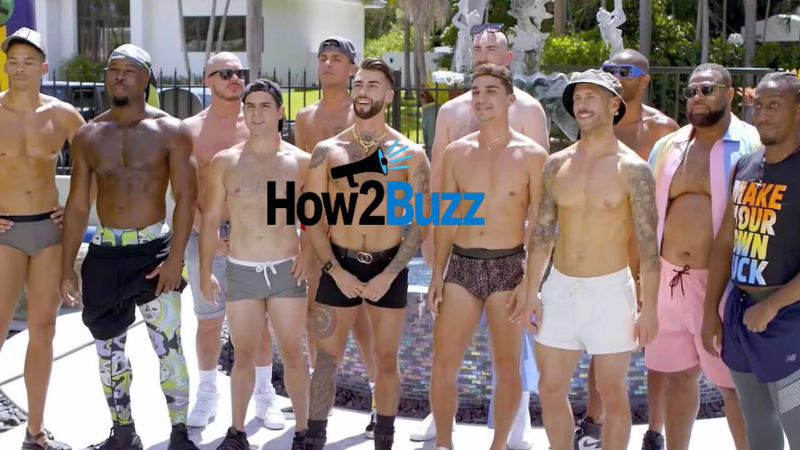Over the past few years, internet slang has taken a life of its own. One such term that keeps popping up in memes, TikToks, and casual conversations is “DILF.” If you’ve heard someone being referred to as a DILF and found yourself wondering, what’s a DILF person, you’re not alone. It’s a modern term that carries both cultural weight and a humorous undertone.
So, what’s all the buzz about? In the simplest terms, a DILF person is typically a man—specifically a father—who is considered physically attractive. But it’s not just about looks. The term also suggests a certain level of maturity, confidence, and charisma. Let’s break it down a bit more and explore how this term evolved, what it means today, and why it has found a comfortable home in modern pop culture.
What’s a DILF Person in Pop Culture?
In today’s media landscape, understanding what’s a DILF person means looking at how movies, TV shows, and social media have embraced the term. Think of beloved characters like Coach Taylor from Friday Night Lights or Pedro Pascal in basically any role—these men often fit the DILF profile. They’re rugged, mature, and have an effortless appeal that younger audiences find magnetic.
The term originally gained traction as a playful mirror of the more familiar “MILF.” While it was once seen as edgy or NSFW, it’s now comfortably used in memes and lifestyle commentary. It’s not unusual to see TikToks dedicated to ranking celebrity DILFs or even jokingly referring to someone’s dad as a DILF—of course, always with a sense of humor.
What makes the DILF trope so appealing in pop culture is the way it blends masculine strength with emotional maturity. These aren’t just guys with good looks; they’re usually perceived as responsible, protective, and cool under pressure. It’s the whole package—and that’s what gives the term such cultural staying power.
What’s a DILF Person in Real Life?
It’s one thing to talk about what’s a DILF person in movies, but what about in everyday life? Surprisingly, the criteria are not that different. A DILF in real life is usually someone who exudes confidence, takes care of himself physically, and is also emotionally available. He’s a father figure with an edge—and perhaps a dad joke or two up his sleeve.
People often associate DILFs with a certain sense of style and responsibility. Maybe it’s the guy in your neighborhood who jogs with a stroller while still looking like he just stepped off a GQ cover. Or it could be the man who balances work, fatherhood, and still finds time for hobbies like cooking or hiking. It’s not just about age or being a dad—it’s about the vibe.
Also, it’s important to understand that the term isn’t always meant in a literal sense. Sometimes, it’s used playfully to describe any man who embodies that protective, mature energy, regardless of whether he has kids. So yes, you can be called a DILF even if you’re not technically a father—welcome to internet logic.
What’s a DILF Person: The Evolution of the Term
The phrase “what’s a DILF person” might feel like a modern invention, but the concept has been around in one form or another for decades. In earlier times, the attractive, older man archetype was simply referred to as a “silver fox” or “ladies’ man.” The internet just gave this idea a fresh, tongue-in-cheek label.
The acronym DILF—short for “Dad I’d Like to… well, you get the idea”—was first popularized as a cheeky response to MILF culture. Over time, it’s shed much of its shock value and evolved into a more lighthearted, less explicit term that now sits comfortably in casual language. People use it as a compliment, often with a mix of humor and genuine admiration.
Interestingly, the shift from seeing older men as merely “dads” to potential style and lifestyle icons mirrors changes in how masculinity is viewed. The DILF label celebrates men who embrace fatherhood while also remaining confident, attractive, and emotionally intelligent—traits that were once seen as mutually exclusive.
Traits That Make Someone a DILF
Not every dad—or man—is automatically a DILF. So what exactly makes someone fit the bill? There are a few core traits that most people associate with this term, and they go beyond just physical appearance.
First, there’s emotional maturity. DILFs typically aren’t hotheads or man-children. They’re thoughtful, dependable, and calm under pressure. Whether it’s fixing a broken sink or helping with math homework, they handle things with ease and patience.
Second, there’s the physical element. While it doesn’t mean being jacked like a superhero, DILFs usually take care of themselves. That might mean working out, dressing well, or simply having that natural charisma that draws people in. It’s the full package of appearance and attitude that sets them apart.
Lastly, there’s a lifestyle aspect. DILFs often have hobbies, passions, or careers that add depth to who they are. They’re not just dads—they’re interesting, engaged individuals who happen to have kids. That’s a big part of the appeal.
Social Media and the Rise of the DILF Trend

There’s no denying that platforms like Instagram and TikTok have played a major role in popularizing the DILF trend. From hashtags to viral videos, people love celebrating stylish, cool dads who seem to have it all figured out. The phrase “what’s a DILF person” often trends because social media thrives on turning people into relatable icons.
Accounts dedicated to dad fashion, parenting hacks, or fitness routines often feature men who embody DILF energy. It’s not just about showing off abs or dad bods—it’s about showcasing confidence, humor, and vulnerability. That’s what resonates with people.
What’s more, this trend has helped challenge outdated stereotypes. Men are encouraged to be present in their kids’ lives, show affection openly, and care about their well-being and appearance. Being a DILF, in many ways, has become a symbol of modern masculinity—equal parts strength and softness.
Misconceptions Around the DILF Label
Like any internet slang, “what’s a DILF person” isn’t without its fair share of misconceptions. One common one is that being a DILF is all about looks. While physical appearance plays a part, it’s far from the whole story. Plenty of men might not be model material but still have serious DILF energy thanks to their presence and character.
Another misunderstanding is that the term objectifies dads or makes light of fatherhood. While it can be used in a flirtatious or joking way, many people also use it as a genuine compliment. It acknowledges that fatherhood doesn’t have to mean giving up style, self-care, or charisma.
Also, some assume that only older men can be DILFs. But age isn’t a strict requirement—what matters more is the vibe. As long as someone embodies that balance of maturity, attractiveness, and reliability, they can earn the title.
The Difference Between a DILF and Other “-ILFs”
If you’ve spent any time on the internet, you’ve probably seen a lot of “-ILF” terms thrown around. While DILF is specific to dads, others like MILF or even GILF have their own unique cultural significance. But each one represents a mix of attraction and admiration.
What sets a DILF apart is the blend of masculine responsibility and effortless charm. MILFs often get attention for balancing motherhood and allure, while DILFs are recognized for doing the same—just in their own way. They take care of their kids, but they also take care of themselves, and that balance is what resonates.
The takeaway here? These terms, while cheeky, reflect changing attitudes toward parenting, age, and attraction. People aren’t just looking at youth for beauty anymore. They’re seeing value in maturity, experience, and emotional intelligence too.
The Impact of DILF Culture on Parenting
Believe it or not, DILF culture has had a surprisingly positive effect on how fatherhood is perceived. Today, more men are embracing hands-on parenting and taking pride in their role as dads. The idea that you can be both a devoted parent and still maintain a sense of self is powerful.
Being labeled a DILF often means someone has found that balance. It encourages men to stay engaged with their families while also not losing sight of their personal growth and appearance. That, in turn, helps normalize the idea that parenting isn’t just a mom’s job—it’s a shared responsibility.
And when society celebrates involved, attractive dads, it helps challenge toxic masculinity and outdated gender roles. The DILF label might be humorous, but the message behind it is seriously important: dads matter, and they can be cool, stylish, and emotionally present too.
FAQs About What’s a DILF Person
Is being called a DILF a compliment or an insult?
It’s generally meant as a compliment! While it’s a bit cheeky, it usually reflects admiration for someone’s attractiveness and character—especially if they’re a dad.
Can you be a DILF if you’re not a dad?
Absolutely. While the “D” stands for “dad,” the term is often used more loosely to describe men who embody those mature, attractive traits—even if they don’t have kids.
What makes someone a DILF besides looks?
Personality plays a huge role—confidence, emotional intelligence, and a strong sense of responsibility all contribute to DILF status.
Is “DILF” appropriate to use in professional settings?
Not really. It’s a casual, slang term best kept for informal conversations or social media. In a workplace, it’s better to keep things respectful and professional.
How did the term DILF become popular?
It started as a spin-off of MILF culture and gained traction online through memes, TV shows, and social media influencers celebrating cool, attractive dads.



